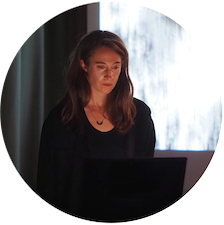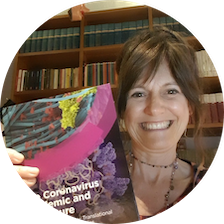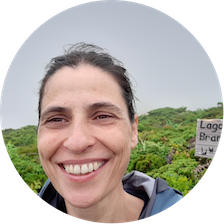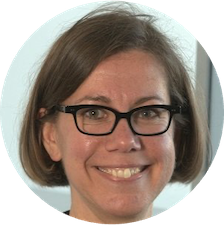Weaving a speculative story of ritual and healing, where scientific and policy outcomes are intertwined with artistic processes through the thematic thread of Endocrine Disrupting Chemicals (EDCs).

Project description
This project brings together the knowledge of four researchers, whose work sits at different stations along a flow of chemicals; from agriculture via law and policy through bodies and into water. Collaboratively we will create four rituals that acknowledge our entanglement with chemicals, celebrate the healing and restorative capacities of bodies and ecosystems and give space to and thanks for these processes.
The four researchers are presented as Wise Women, holders of knowledge and protectors of life; their scientific practices are reframed as relations of care and ritual becomes a vehicle to make connections across bodies, scales, cycles and scientific disciplines. This work will address fertility, community and (more-than-human) health, telling stories that explore the power of positive imaginaries, offering a way of ‘staying with our troubles’ whilst envisioning alternative ways of being in the world. Through ritual and storytelling we bring into being new possibilities.
These Relations are Forever website.
Ritual 1, Site: Corn field
Director - Jemma Woolmore
Performer - Jemma Woolmore in place of Irene Guerrero due to illness.
Director of Photography / Camera Operator - Cristina Amate Garcia
Sound production - Tilman Böhnke
Sound Edit and Design - Jemma Woolmore
Sound Mix - Jana Irmert Thank you to Caravati Industria Agricola for the use of their field.
Ritual 2, Site: Laboratory, JRC Ispra
Director - Jemma Woolmore
Performer - Sandra Coecke
Director of Photography / Camera Operator - Cristina Amate Garcia
Sound production - Tilman Böhnke
Sound Edit and Design - Jemma Woolmore Sound Mix - Jana Irmert
Thank you to Jessica Ponti for the use of your lab, to Susanne Bremer-Hoffmann for your advice and to Pascal Colpo for the full exploration of all the lab equipment.
Thank you to all Sandra’s colleagues in the Directorate Health and Food (Units F2 Technologies for Health & F7 Digital Health).
Ritual 3, Site: MDSE, BItterfeld, Germany
Director - Jemma Woolmore
Performer - Saskia Vermeylen
Director of Photography/First Camera Operator: Jubal Battisti
Second Camera Operator: Valentin Braun
Sound production - Thai Tai Pham
Sound Edit and Design - Jemma Woolmore
Sound Design - Christoph Scheurich
Sound Mix - Jana Irmert
Set assistant - Cosmo Schüppel
Thank you to Christian Dorausch, Mrs Grob and the team from MDSE Mitteldeutsche Sanierungs- und Entsorgungsgesellschaft mbH for facilitating our access to their site in Bitterfeld.
Thank you to Kerry-Ann Staton for your music curation.
Ritual 4, Site: Pond JRC ISPRA
Director - Jemma Woolmore
Performer - Caterina Cacciatori
Director of Photography / Camera Operator - Cristina Amate Garcia S
ound production - Jemma Woolmore
Sound Design - Jemma Woolmore Sound Mix - Jana Irmert
Thank you to Virginia Bernardi, Caterina Benincasa, Adriaan Eeckels for all your organisational support and for making this project possible.
Thank you to Kerry-Ann Stanton for your council around ritual, proof reading and general guidance and support.
To Ingeborg Reichle for curatorial support, Christoph Scheurich for holding everything else together throughout this project.
Jemma Woolmore is a media artist, originally from New Zealand and based in Berlin. Caterina Cacciatori is an environmental engineer working on water management. Sandra Coecke is a toxicologist working on Food Safety and One Health. Irene Guerrero Fernandez is a geoinformatician and agricuiltural ecologist and Saskia Vermeylen is legal anthropologist working at Strathclyde University. The researchers first met Jemma at the SciArt Summer School on NaturArchy which took place in June 2022 at the JRC, and Jemma then connected the group.
What drives this project?
The main idea that I had by coming into this project and performing a ritual was to slow down science and the way we do science. So it was really about stopping and reflecting on when we produce data as scientists. where are we getting this data from? Should we be grateful for the data that we collect and for the entity from which we collect data? So in my case, it's waters. The ritual is bringing up this idea of slowing down and stopping and using other senses to perceive the environment while we do science.
I think it's super important for science that we don't just see science as a pure production of information, but that these information are linked to our society and to our also relations with nature.
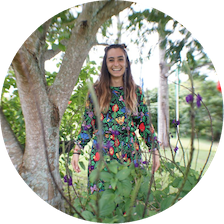
Caterina Cacciatori, Researcher

